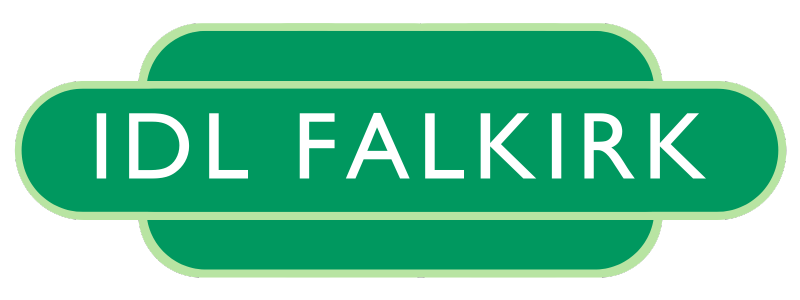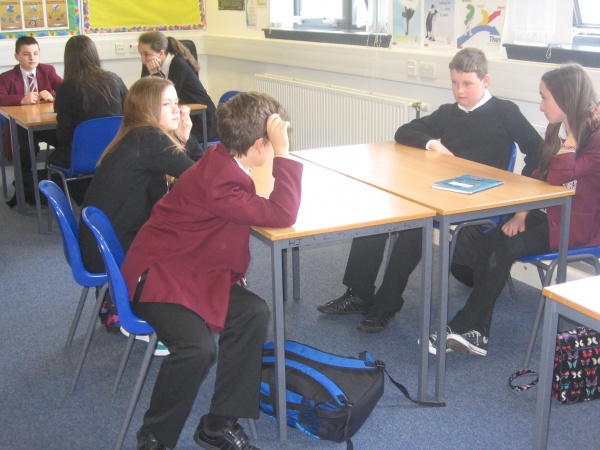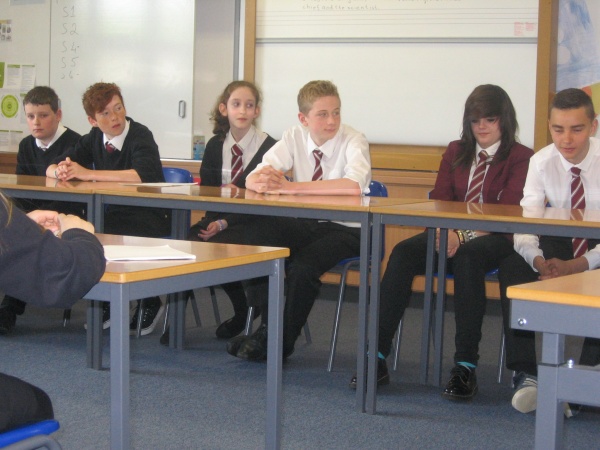 On 23rd May, Yvonne McBlain visited Falkirk High School to see Lynne Ferguson, English teacher, and her S1 class working on their Space storyline.
On 23rd May, Yvonne McBlain visited Falkirk High School to see Lynne Ferguson, English teacher, and her S1 class working on their Space storyline.
Lynne has continued to develop her use of this approach following initial exploration with Yvonne 4 years ago. This year, Lynne’s pupils needed to develop their listening skills in particular, so she tailored the storyline to help pupils progress these. She structured the literacy tasks to allow particular development of note-taking and the associated understanding required to do this well. 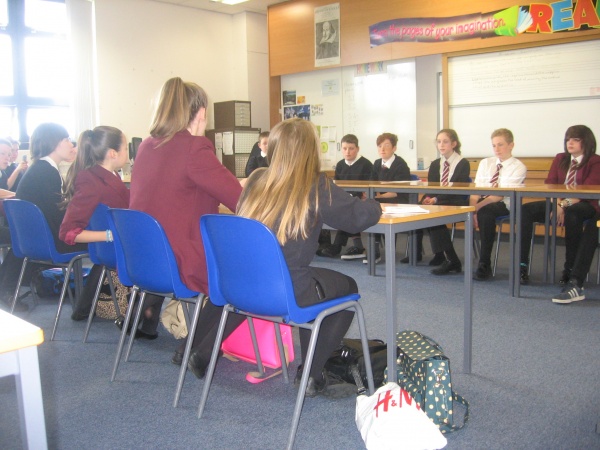 The E & Os targeted were 4-05a & 4-09a, and Lynne also integrated significant aspects of learning which she knew the pupils would need to develop for NQ5.
The E & Os targeted were 4-05a & 4-09a, and Lynne also integrated significant aspects of learning which she knew the pupils would need to develop for NQ5.
During this lesson, some pupils took on their storyline role as a member of the crew destined to save Earth. They were making themselves available to the world’s press who wanted to find out about their mission to initiate the colonisation of a new and unpolluted planet in order to save human kind. The rest of the pupils were in role as international press reporters from a publication of their choice. The mission director conducted the conference according to protocols observed on the news. Pupils had prepared some initial questions, but readily used their listening and notes to question statements made by the crew. There was strong evidence that pupils were developing questions from their notes and they grew increasingly skilled and direct in building on the answers of the crew. Their questions showed that they were an informed audience with deep concerns over issues around the mission, and they were increasingly probing in pursuing satisfactory answers. 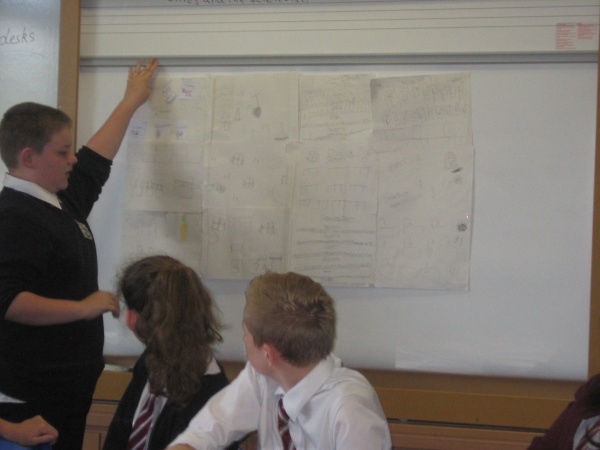
The pilot of the mission crew got a particular grilling about his lack of English and any communication issues this might cause during the journey – particularly if anything went wrong. The agriculturalist was confident that he had all of the requirements to grow food once they arrived on planet Tenalp Wen, but was a bit miffed that he couldn’t bring his dog and house it with the other beasts in the special hold. The scientist, medical officer, chief of security and supplies expert were also confident that they could fulfil their roles. Pupils were very able to apply their drama improvisation skills in conjunction with their listening to help them understand and respond. The crew answered well and increased in confidence visibly. They were able to sustain their roles with ease and all pupils made good use of factual and inferential information.
Following the press conference, pupils came out of role and were asked to pretend that lift off had happened, and the mission was now in progress. Lynne showed a video of life in the international space station during which pupils had to prepare to answer the following questions:
What is the purpose of this film (text)? Who is the audience for the Film?
What did you learning about the environment? What surprised you about living in space?
Lynne paused the video to give pupils a chance to capture relevant notes before viewing the next section.
Lynne’s use of storyline has enabled her pupils to develop specific literacy skills within an engaging context. The storyline approach ensured that pupil voice/personalisation and choice was embedded in this work. Pupils were able to apply science knowledge and understanding through the context. They were also able to apply their drama and art & design skills in the development of their characters, setting, and the plot of their story.
